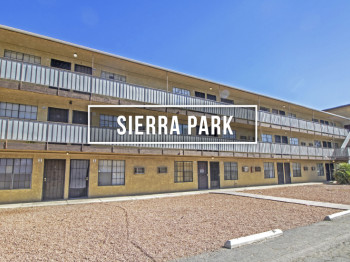Trending Multifamily News
NMHC’s Quarterly Survey finds municipalities threatening to or imposing rent control are losing interest from multifamily firms
An increasing number of jurisdictions recently have imposed rent control or are seriously considering doing so, leading many market participants to reconsider their investment decisions, according to the NMHC's Quarterly Survey of Apartment Market Conditions, conducted in October 2019. Rent control legislation is continuing to expand with 58 percent of respondents saying that they operate in jurisdictions that have either recently imposed rent control or are seriously considering doing so. Of respondents who operate in these markets, over one-third (34 percent) have already cut back on investment or development, up from 20 percent last quarter, while an additional forty-nine percent are considering doing so going forward.
While rent control has led to increased concerns, the survey found that national market conditions remain strong as the Market Tightness (54), Equity Financing (55), and Debt Financing (75) indexes all came in above the breakeven level (50). The Sales Volume Index (46) indicated a continued softness in property sales.
“While there has been much speculation recently about a coming recession, these latest survey figures suggest that apartment demand continues to drive rent growth and occupancy,” noted NMHC Chief Economist Mark Obrinsky. “Twenty percent of respondents reported improving market conditions, compared to just 12 percent who observed a looser market. Lower interest rates continue to create a more favorable environment for debt financing, as 58 percent of respondents reported improving conditions."
- The Market Tightness Index decreased from 60 to 54, indicating improving conditions for the third consecutive quarter. Twenty percent of respondents reported tighter market conditions than three months prior, compared to 12 percent who reported looser conditions. Over two-thirds (69 percent) of respondents felt that conditions were no different from last quarter.
- The Sales Volume Index decreased from 48 to 46, with 31 percent of respondents reporting lower sales volume than three months prior. A slightly smaller group – 23 percent of respondents – reported higher sales volume, while 41 percent regarded volume as unchanged. Although the share of respondents indicating increased sales volume was the highest in 5 quarters, the share indicating lower sales volume grew slightly as well, causing the index to remain below 50.
- The Equity Financing Index inched down from 56 to 55, marking the eighth straight quarter of relatively unchanged conditions. Eighteen percent of respondents reported that equity financing was more available than in the three months prior, compared to only nine percent who believed equity financing was less available. Meanwhile, the majority of respondents (60 percent) thought that conditions were unchanged in the equity market.
- The Debt Financing Index decreased from 80 to 75. For the third straight quarter, the majority of respondents (58 percent) report-ed better conditions for debt financing compared to the three months prior, while eight percent felt that financing conditions were less favorable. More than a quarter (27 percent) of respondents reported unchanged conditions.
About the Survey:
The October 2019 Quarterly Survey of Apartment Market Conditions was conducted October 7-14, 2019; 102 CEOs and other senior executives of apartment-related firms nationwide responded.
The National Apartment Association (NAA) and the National Multifamily Housing Council (NMHC) today released the apartment housing industry’s policy priorities for 2019-2020.
It’s no secret that a growing number of families across the income spectrum are struggling to find housing they can afford. As a country, we need comprehensive, proactive policy solutions that can help to mitigate this housing affordability crisis. As such, NAA/NMHC have made this the lodestar of our advocacy efforts in 2019-2020.
“We’ve identified the issue of housing affordability as a top priority for 2019 because it is wide-reaching and impacts communities around the country,” said NAA President and CEO Robert Pinnegar, CAE.
“There is a growing concern at all levels of government about how to best deal with housing affordability issues,” said Doug Bibby, NMHC President. “It’s incumbent upon us as an industry to do our utmost to work with lawmakers to find holistic policy solutions that provide the housing our nation needs.”
One critical driver of the housing affordability crisis is the cost of local, state and federal regulations. Recent research has found that such regulations account for an average of 32.1 percent of rental housing development costs – driving up the price tag to create adequate housing options for all incomes. In 2019 and 2020, NAA/NMHC will advocate for a reduction of unnecessary, harmful barriers to the development of more housing and preservation of existing apartments.
In addition to the cost of regulation, there are many other policies and programs that impact affordability. Getting housing finance reform right is a critical component of addressing housing affordability. In addition, the Section 8 Housing Choice Voucher Program is an important tool designed to assist families in need of affordable housing. We are working on proposals that will enhance the Section 8 federal housing program and incentivize additional private sector participation.
In addition to housing affordability and regulatory reform, NAA/NMHC will also focus on other critical federal legislative and regulatory issues. These include the ongoing implementation of the 2017 tax law, clarification of fair housing rules, rent payments in credit scoring, data security standards, federal flood insurance reauthorization, construction and development incentives, accessibility litigation and music licensing reforms.
The full NAA/NMHC 2019 Apartment Industry Policy Priorities document can be found at NAA and NMHC.
Statement from the National Multifamily Housing Council (NMHC) and the National Apartment Association (NAA) in response to President Trump’s State of the Union address:
“On behalf of the apartment industry, the 39 million Americans who call apartments home and the 12.3 million whose jobs are supported by the industry, we applaud President Trump and his administration’s focus on economic growth and job creation through infrastructure development, the ongoing federal regulatory overhaul and the recently reformed tax code.
“Last night the President made it clear that infrastructure is a top priority this year. As lawmakers develop legislation, NMHC/NAA are focused on ensuring that housing and local infrastructure that impact the cost of housing are key components of any infrastructure package. With housing demand continuing to grow, policymakers must take advantage of this moment to drive new residential investment, support community-level infrastructure and promote transit-oriented and high-density development.
“By 2030, there will be 94 million more people in the U.S. than there were in 2000. All of these people need somewhere to live and work. Last year’s tax reform package and the overhaul of the federal regulatory landscape go a long way towards protecting and enhancing the multifamily industry’s ability to serve the millions of Americans who live in apartments.
“We look forward to working with the administration and policymakers on a job-creating infrastructure package that helps the multifamily industry build the 4.6 million new units that are needed to meet surging demand.”
Apartment market conditions continued to soften according to results from the January National Multifamily Housing Council’s (NMHC) Quarterly Survey of Apartment Market Conditions. The Market Tightness (36), Sales Volume (40) and Debt Financing (38) Indexes landed below the breakeven level of 50, while the Equity Financing Index increased to 58. In addition, the survey found that half of respondents expect green financing to increase in 2018.
“The latest survey results underscored the prevailing view at our recent Apartment Strategies Conference that we are late in the current cycle,” said NMHC Chief Economist Mark Obrinsky. “While some seasonality comes into play, the Market Tightness Index was a little below its long-term January average, indicating market conditions are slightly weaker than normal. Demand for apartments overall remains strong and equity capital still looks favorably on the apartment sector. However, many owners are satisfied with their holdings and more inclined to stand pat.”
The Market Tightness Index decreased one point to 36 – the ninth consecutive quarter of declining conditions. Just 14 percent reported tighter conditions compared to the previous three months, compared to 42 percent of senior executives who reported looser conditions.
The Sales Volume Index declined from 45 to 40. Nearly one in five (19 percent) indicated higher sales volume, whereas 38 percent reported declining sales volume over the previous quarter.
The Equity Financing Index remained increased from 46 to 58, reversing an eight-quarter decline of market conditions. Twenty-seven percent of respondents reported equity financing was more available over the previous three months, with just 11 percent reporting looser conditions.
The Debt Financing Index declined from 51 to 38, with over a third (36 percent) of respondents reported worse conditions for debt compared to the three months prior. Eleven percent indicated that conditions were more favorable.
Half of respondents expect green financing to increase in 2018 (excluding the 29 percent of respondents who reported “don’t know”). Almost one-third (31 percent) expect volumes to be flat compared to 2017, while almost one-fifth (19 percent) expect more difficulty obtaining financing.
About the Survey:
The January 2018 Quarterly Survey of Apartment Market Conditions was conducted January 16-23, 2018; 144 CEOs and other senior executives of apartment-related firms nationwide responded.
The National Multifamily Housing Council (NMHC) elected Sue Ansel, President and CEO of Gables Residential, to serve a two-year term as the Council’s Chairwoman at its Annual Meeting last week.
As Chairwoman of the apartment industry’s leading voice, Ansel outlined her priorities over the coming years focusing on several areas of critical importance to the industry: Innovation, Diversity and Inclusion, Legislative and Regulatory Issues and the growth of the NMHC Foundation. In addition, under her leadership NMHC will continue to make clear that renting is a desirable housing option.
Ansel noted the exciting times ahead of the apartment industry, “The possibilities ahead for us are enormous. There is $2 billion in venture capital focused on our industry, up from $400 million two years ago. These emerging technologies will change the way we build, manage and monitor our communities, how we interact with our residents and much more.”
Building on that theme, NMHC released new data and insights on the apartment of tomorrow and a web site with visualizations of how the industry might respond to the coming wave of disruption and deliver the 4.6 million new apartments the U.S. will need by 2030 to meet demand.
NMHC also announced the appointment of the following officers for two-year terms:
Vice Chairman: David Schwartz, Co-founder and CEO of Waterton Associations, Chicago, IL
Treasurer: Ken Valach, CEO of Trammell Crow Residential, Dallas, TX
Secretary: James Schloemer, CEO of Continental Properties, Milwaukee, WI
Statement from the National Multifamily Housing Council (NMHC) and National Apartment Association (NAA) following the release of tax reform legislation by the House Ways and Means Committee.
“NMHC/NAA applaud the House Ways and Means Committee release of tax reform legislation. While we are continuing to review the legislative language, the tax reform package, as currently written, looks to encourage economic growth and job creation while protecting the multifamily industry’s ability to serve the 39 million Americans who call apartments home and the 12.3 million jobs supported by the multifamily sector and its residents. Critically, the Tax Cuts and Jobs Act would preserve interest deductibility, like-kind exchanges and other provisions important to the apartment industry.
“There is a long process ahead before tax reform becomes law. As the debate continues, we will continue to work with lawmakers to highlight the importance of the multifamily industry and emphasize how tax reform is critical to developing the 4.6 million more apartments that the country will need by 2030. As tax reform legislation is considered in both houses of Congress, it is critical that any final bill should:
- Protect flow-through entities;
- Retain the deduction for business interest;
- Maintain like-kind exchanges;
- Ensure depreciation rules avoid harming real estate;
- Preserve capital gains treatment of carried interest; and,
- Protect the Low-Income Housing Tax Credit (LIHTC).”
More information about apartments and tax reform is available at protectthelease.com.















